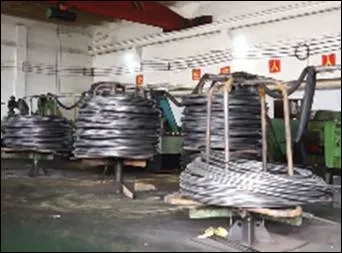Nov . 16, 2024 08:13 Back to list
Properties and Applications of Mild Steel Nuts in Industrial Fastening Solutions
Understanding Mild Steel Nuts Properties, Applications, and Benefits
Mild steel nuts have become an essential component in various industries, serving as crucial fasteners that provide reliability and strength in connections. Mild steel, also known as low carbon steel, typically contains 0.05% to 0.25% carbon content, which gives it a unique combination of ductility and strength. In this article, we will explore the properties, applications, and benefits of mild steel nuts, shedding light on why they are a preferred choice for many engineering and construction projects.
Properties of Mild Steel Nuts
Mild steel nuts are known for their excellent mechanical properties, which include good tensile strength, ductility, and malleability. The low carbon content in mild steel allows for easy machining and welding, making it an ideal material for producing nuts and bolts.
One of the primary characteristics of mild steel is its ability to withstand moderate loads without deforming or breaking, which is crucial in fastening applications. These nuts can also be galvanized or coated to enhance their corrosion resistance. The coatings not only protect the metal from rust but also improve its aesthetic appeal, making mild steel nuts suitable for outdoor and decorative uses.
Applications of Mild Steel Nuts
Mild steel nuts are widely used in various sectors, including construction, automotive, and manufacturing. In construction, they play a vital role in joining structural components, such as beams and columns. Their robustness ensures that buildings and bridges can withstand the forces they encounter during their lifespan.
In the automotive industry, mild steel nuts are commonly used to secure parts of vehicles. From engine assemblies to suspension systems, these nuts contribute to the overall safety and performance of automobiles. Additionally, in machinery and equipment manufacturing, mild steel nuts provide strength and reliability to crucial assemblies.
mild steel nut

Another notable application of mild steel nuts is in the furniture industry. Many pieces of furniture utilize these nuts to ensure stable and secure connections between different components, enhancing both the durability and functionality of the final product.
Benefits of Using Mild Steel Nuts
One of the significant advantages of mild steel nuts is their cost-effectiveness. Compared to other materials such as stainless steel or high-carbon steel, mild steel is generally more affordable while still providing adequate strength and durability for most applications. This affordability makes mild steel nuts an attractive choice for large-scale projects where budget constraints are a consideration.
Moreover, the ease of manufacturing mild steel nuts contributes to their widespread use. The material can be easily molded and shaped according to the specific requirements of a project, allowing for custom solutions that meet diverse needs.
Mild steel nuts also offer good compatibility with other materials. When used in conjunction with other mild steel components, such as bolts and washers, they create reliable connections that can withstand fatigue and heavy loads.
Conclusion
In summary, mild steel nuts are essential fasteners that combine strength, versatility, and cost-effectiveness, making them invaluable in a variety of applications. From construction to automotive and furniture, their properties allow for secure and durable connections. As industries continue to evolve, the demand for reliable fastening solutions like mild steel nuts remains steadfast. Understanding their features and benefits helps in making informed choices for projects that require dependable assembly and structural integrity.
-
The Ubiquitous Reach of DIN934 in Application Realms
NewsMay.16,2025
-
Exploring Different Bolt Types
NewsMay.16,2025
-
Cracking the Code of Sleeve Anchor Mastery
NewsMay.16,2025
-
Clamp Design Principles,Types and Innovations
NewsMay.16,2025
-
Artistry Inspired by the Humble Anchor Bolt
NewsMay.16,2025
-
A Deep Dive into Screw Types
NewsMay.16,2025


